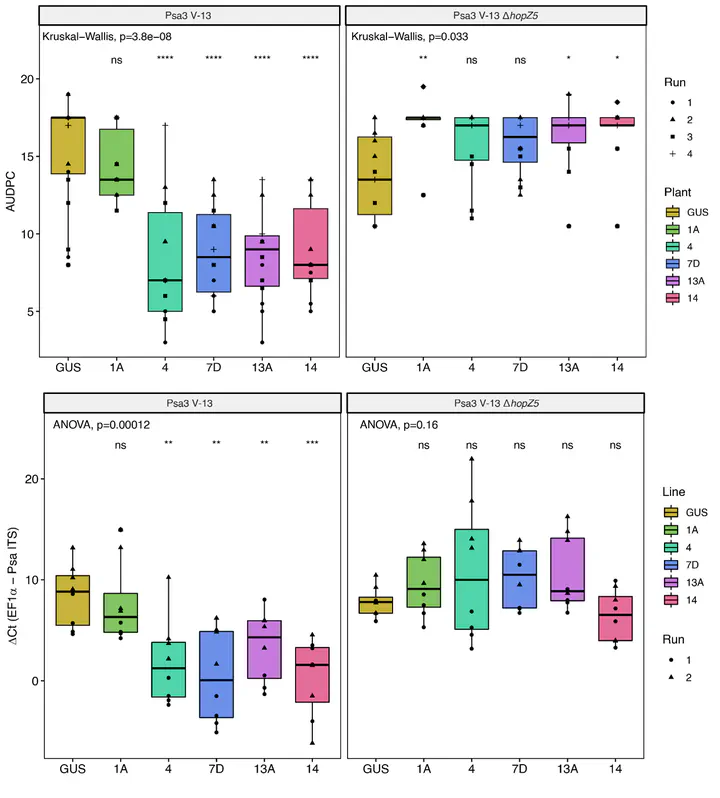NbPTR1 confers resistance against Pseudomonas syringae pv. actinidiae in kiwifruit
Jun 4, 2024·,,, ,,,,,,·
0 min read
,,,,,,·
0 min read
Shin-Mei Yeh
Minsoo Yoon
Sidney Scott
Abhishek Chatterjee
Lauren Hemara
Ronan Chen
Tianchi Wang
Kerry Templeton
Erik Rikkerink
Jay Jayaraman
Cyril Brendolise

Abstract
Pseudomonas syringae pv. actinidiae biovar 3 (Psa3) causes a devastating canker disease in yellow-fleshed kiwifruit (Actinidia chinensis). The effector HopZ5, which is present in all isolates of Psa3 causing global outbreaks of pandemic kiwifruit canker disease, triggers immunity in Nicotiana benthamiana and is not recognised in susceptible A. chinensis cultivars. In a search for N. benthamiana non-host resistance genes against HopZ5, we found that the nucleotide-binding leucine-rich repeat receptor NbPTR1 recognised HopZ5. RPM1-interacting protein 4 (RIN4) orthologues from multiple plants, including kiwifruit, were associated with NbPTR1-mediated autoimmunity suppression and recognition of HopZ5. No functional orthologues of NbPTR1 were found in A. chinensis. NbPTR1 transformed into Psa3-susceptible A. chinensis var. chinensis ‘Hort16A’ plants introduced HopZ5-specific resistance against Psa3. Altogether, this study suggested that expressing NbPTR1 in Psa3-susceptible kiwifruit is a viable approach to acquiring resistance to Psa3 and it provides valuable information for engineering resistance in otherwise susceptible kiwifruit genotypes.
Type
Publication
Plant, Cell & Environment